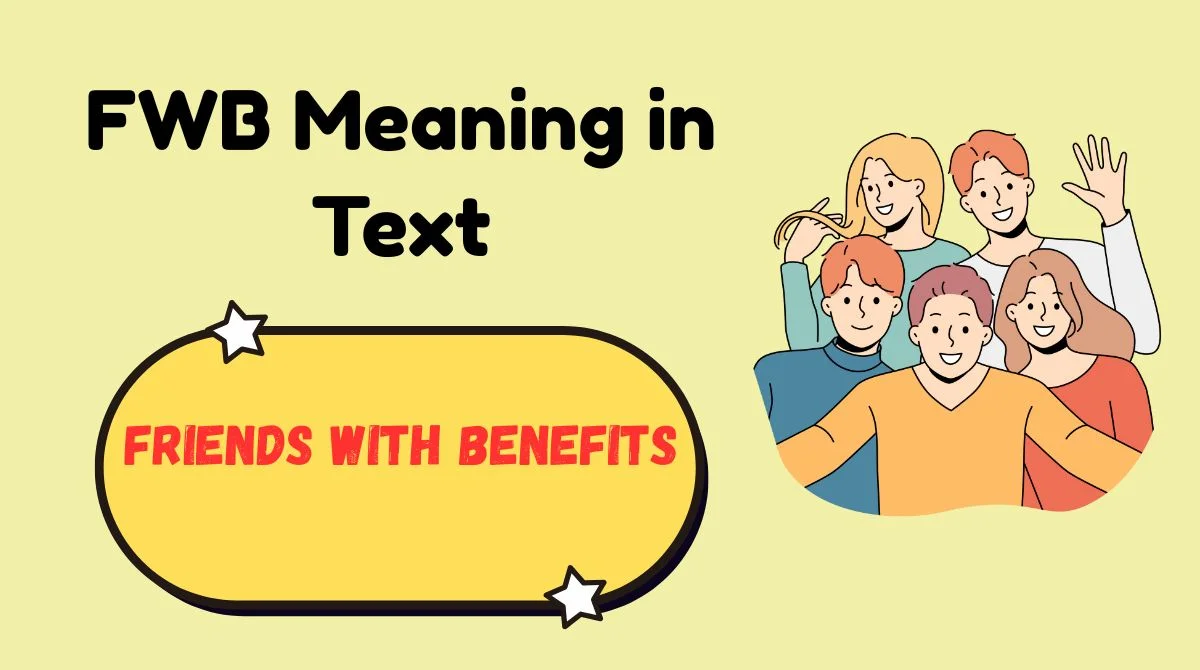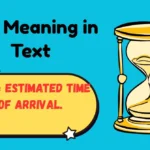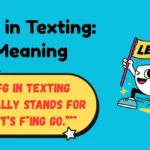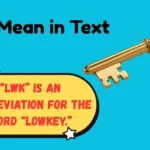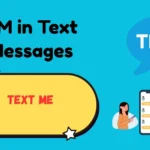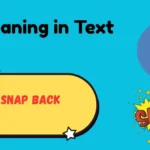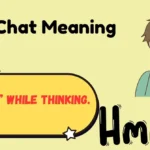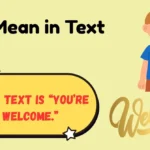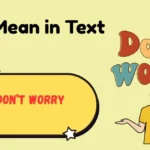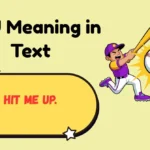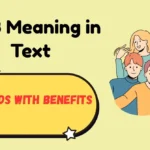Texting slang can feel like its own secret language. Acronyms pop up everywhere, from dating apps to group chats, and if you don’t know what they mean, you risk missing the point—or worse, misinterpreting it.
One abbreviation that often raises questions is FWB.
So, what does FWB mean in text? How is it used? And what are the best ways to say it without sounding awkward?
This guide breaks down the meaning, context, risks, and alternatives so you can communicate clearly and confidently.
What Does FWB Mean in Text?
FWB stands for “Friends With Benefits.”
It describes a relationship where two people are friends but also engage in physical intimacy without being in a committed romantic relationship. In texting, when someone says “looking for FWB” or “I’ve got an FWB,” they’re referring to this specific arrangement.
Unlike casual dating or hookups, FWB implies some level of friendship beyond intimacy. There’s usually trust, regular conversation, and shared experiences, but without the emotional or long-term commitment of a relationship.
Origins and Popularity of “FWB”
The idea of “friends with benefits” isn’t new, but the acronym FWB gained popularity in the late 1990s and early 2000s with the rise of online chatrooms and dating forums.
Pop Culture Boost
- 2003: The term started showing up in TV shows and films.
- 2011: The Hollywood movie Friends With Benefits (starring Justin Timberlake and Mila Kunis) brought the term into mainstream culture.
- Social Media: Apps like Tinder, Bumble, and Snapchat helped abbreviations like FWB spread faster since shorter messages are easier to send.
Today, FWB is standard texting slang, especially in online dating circles.
Key Characteristics of an FWB Relationship
FWB arrangements share unique traits that set them apart from both traditional friendships and romantic relationships.
- Friendship Foundation – There’s usually a genuine friendship at the core.
- No Commitment – Both parties agree not to expect exclusivity or romance.
- Physical Intimacy – The relationship includes benefits beyond friendship.
- Flexibility – People can spend time together casually without labels.
- Clear Boundaries – Successful FWB setups often depend on honesty and rules.
Example:
Two college friends hang out regularly, share jokes, grab meals, and also hook up. They don’t call each other boyfriend/girlfriend, and they’re free to date other people. That’s a classic FWB situation.
Why Understanding Context Matters in Texting
FWB might be clear in a casual chat with friends, but drop it in a professional setting and it can get awkward fast.
- In online dating apps, “FWB” usually signals someone is looking for a casual arrangement.
- In group chats, context determines whether people read it as slang or a joke.
- In professional environments, it can be highly inappropriate.
Misinterpretation Example:
If someone texts “I thought we could be FWB” and the recipient doesn’t know the acronym, they might assume it means “Fun With Buddies” or “Friends We Bond.” Misunderstandings like these show why context matters.
Common Situations Where “FWB” Appears in Texts
You’ll usually encounter FWB in one of these scenarios:
- Dating Apps: Profiles or messages often include “FWB only” to signal intentions.
- Private Chats: Friends discussing relationships may casually mention it.
- Group Chats: Sometimes appears jokingly when people talk about relationships.
- Pop Culture References: Songs, memes, or quotes about casual relationships.
Case Study:
On Tinder, one survey showed that 17% of users listed “FWB” as something they’re open to. The abbreviation helps cut through confusion, saving time by clarifying expectations upfront.
Alternatives to Saying “FWB” in Text
Sometimes, FWB sounds too blunt or awkward, especially if you’re texting someone new. That’s where alternatives come in.
Casual & Playful Alternatives
- “No-strings buddy”
- “Just for fun”
- “Hangout + more”
- “Chill friend”
- “Play partner”
Polite & Discreet Alternatives
- “Casual arrangement”
- “Situationship”
- “Close friend”
- “Friendship plus”
- “Non-exclusive connection”
Euphemistic / Professional Alternatives
- “Casual partner”
- “Non-committed relationship”
- “Low-pressure connection”
- “Private companion”
- “Non-romantic partnership”
Choosing the Right Alternative: Tone, Audience, and Intent
When deciding whether to use FWB or an alternative, think about three key things:
- Know your audience – Is the person familiar with texting slang?
- Understand the relationship – Are you being casual, or do you need to keep it discreet?
- Avoid slang in serious settings – Terms like FWB rarely belong in work or family contexts.
- Use humor carefully – A playful nickname might land well with friends but come off as disrespectful with someone new.
Examples of How to Say It Instead of “FWB”
Here’s how different versions might look in actual texts:
| Situation | Direct “FWB” Text | Alternative Text |
|---|---|---|
| Dating App | “Looking for FWB.” | “Looking for a casual connection.” |
| Friend Chat | “She’s my FWB.” | “We’ve got a casual thing going.” |
| Discreet Conversation | “I’ve got an FWB.” | “I’m seeing someone casually.” |
This helps tailor your message while keeping the tone respectful.
FWB vs Other Popular Dating Acronyms
FWB isn’t the only shorthand used in dating and texting. Here’s how it stacks up against similar terms:
| Acronym | Meaning | Key Difference from FWB |
|---|---|---|
| NSA | No Strings Attached | Purely physical, less emphasis on friendship. |
| ONS | One Night Stand | One-time encounter, not ongoing like FWB. |
| LTR | Long-Term Relationship | Committed, opposite of FWB. |
| BAE | Before Anyone Else | Romantic partner, not casual. |
This comparison helps clarify why people choose specific terms.
Potential Risks and Misunderstandings of Using “FWB”
While FWB can simplify communication, it’s not risk-free:
- Emotional Confusion – One person may start developing deeper feelings.
- Social Stigma – Not everyone views FWB positively.
- Miscommunication – People might interpret the term differently depending on culture or age.
- Awkward Conversations – Saying FWB to the wrong audience can create tension.
Quote to Remember:
“Clear communication is the difference between casual fun and emotional chaos.”
Conclusion
FWB in text means Friends With Benefits, a shorthand that signals a casual relationship built on friendship and intimacy without long-term commitment. While the abbreviation is widely understood in casual and dating contexts, it’s not always the best choice depending on who you’re talking to.
By knowing the context, using alternatives when needed, and being respectful in your wording, you can avoid misunderstandings and make sure your message comes across exactly as intended.
